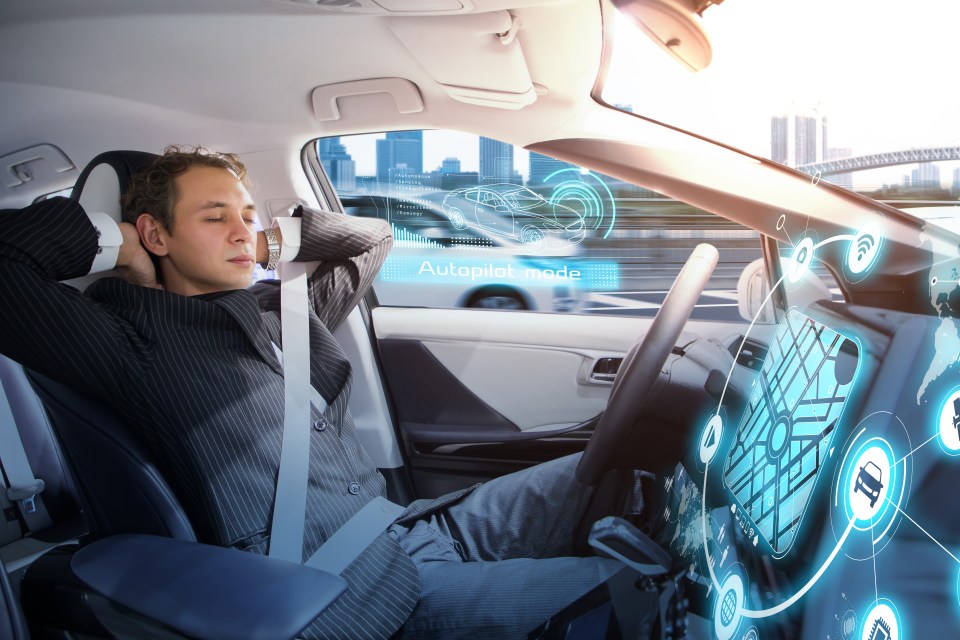Date driverless cars set to be on UK motorways revealed – how you will be affected

AUTONOMOUS cars enabling drivers not to concentrate on the road will be used in the UK from 2026, according to the transport secretary.
Mark Harper said the technology has "a huge number of potential uses" including boosting road safety and making it easier for disabled people to travel independently.
The Automated Vehicles Bill to create a set of laws for using autonomous vehicles was introduced into Parliament last month.
Mr Harper told BBC Radio 4's Today programme that the legislation is currently going through Parliament: "Hopefully we'll get that through Parliament by the end of 2024."
"Probably by as early as 2026, people will start seeing some elements of these cars that have full self-driving capabilities being rolled out.
"We already know the technology works. You can see the technology being rolled out with a safety driver in place.
"I've seen the technology being used in California for example, without a safety driver, so in full, autonomous mode.
Mr Harper insisted the technology works and hopes the proper legislation will give Brits full confidence in the safety of this technology.
Asked if people will be able to travel in self-driving vehicles "with your hands off the wheel, doing your emails" in 2026, Mr Harper replied: "Yes, and I think that's when companies are expecting - in 2026, during that year - that we'll start seeing this technology rolled out."
Responding to a question by former Top Gear presenter James May - who was Today's guest editor - about why the Government is supporting the development of autonomous driving, Mr Harper claimed there are "a few" reasons.
Most read in Motors
He said: "I think it will actually improve road safety. We already have a very good road safety record in Britain but there are still several thousand people a year killed on our roads.
"That could be improved. It's a big economic opportunity for Britain to get what will be a big global share of market."
Mr Harper said there are a lot of Brits who currently don't have the opportunity to get the freedom that "many of us drivers take for granted."
"For example, there are people who have disabilities, people with learning disabilities, who don't have the same freedom that driving brings the rest of us.
"This potentially opens up a whole new world for personal freedom, getting to work, having the ability to not have to rely on other people."
How do self-driving cars work?
In a nutshell, self-driving cars have technology fitted that allows them to navigate and be aware of their environment without the need for a human driver.
This means each vehicle is fitted with a GPS unit, an internal navigation system and sensors including a laser rangefinder, radar, and video.
Sensor data allows them to create a 3D image of their environment.
The majority of self-driving cars have "deliberate architecture" installed - meaning they are capable of making intelligent decisions, even working out the best route to their destination.
Once the decision is made the journey is dissected into commands which are fed into devices called actuators.
These actuators control the steering, braking and throttle.
The car's internal map will include the current and predicted static locations of buildings, traffic lights and stop signs.
It will also be able to identify moving objects such as other cars and pedestrians.










